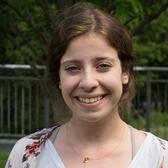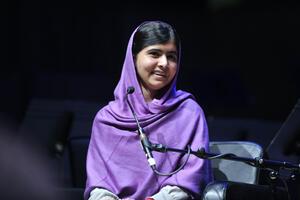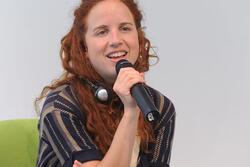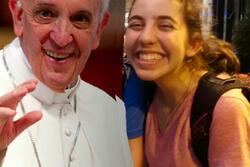Malala's Mission
John Locke believed in natural rights; he believed that all men have the right to life, liberty, and property. I think there are two things wrong with Locke’s beliefs: 1. Women should be entitled to these natural rights as well 2. I believe education is also a natural right. No matter someone’s gender, mental capability, skin color, religious preference, sexuality, or nationality, that individual deserves to be empowered through education.
As a child, I would play “school.” I would pretend to be the teacher, and my siblings and stuffed animals were my students. Although it was a curriculum based on Barbies and Legos, I was attracted early on to sharing my knowledge. It was rewarding to stand in front of the “class,” lecture, and ask questions. As I now reflect upon this role-play, I realize it truly reflects education’s value and impact. In those moments I felt a surge of confidence because I was able to help and teach others. My education has empowered me to share my knowledge, and to use it to help improve the world around me.
Malala Yousafzai is the poster child for education rights. In 2009, Malala wrote for a BBC blog about her life under Taliban rule, and about her belief in education equality for girls in the Swat Valley in Pakistan. On October 9th, 2012, the Taliban shot Yousafzai, who was 15 at the time, in the head. They had gained knowledge of Yousafzai’s advocacy for women’s education, and because her work threatened their sexist beliefs, they attempted to assassinate her. A year later, Malala cofounded the Malala Fund with her father, Ziauddin Yousafzai, the goal of which is “to enable girls to complete 12 years of safe, quality education so that they can achieve their potential and be positive change-makers in their families and communities.” Since then, Yousafzai has continued to fight for education rights and equality. She was named one of Time’s “100 Most Influential People in the World” in the magazine’s 2013-2015 issues. She also won both the 2013 National Youth Peace Prize, and the 2014 Noble Peace Prize. In addition, she delivered a speech at the UN headquarters in 2013 in which she called upon world leaders to ensure equal education rights for all. These are only a small fraction of Yousafzai’s accomplishments.
I am of course awestruck and inspired by Malala’s activism and achievements. She has inspired me to speak up for what I believe in, no matter the opposition I may face. She has also inspired me to take part in the fight to ensure that all people are deemed worthy of receiving an education. One way that I personally take part in this effort is through volunteering at Gateways, a Hebrew school for disabled children. At Gateways, volunteers help students learn Hebrew, prepare for their bar/bat mitzvahs (coming of age ceremony in Judaism), and engage in activities ranging from arts and crafts to music. During my time at Gateways, I have learned the joy of sharing my knowledge with others. I adore watching students' faces beam when they master a new concept or skill, when they gaze upon a new artistic creation, or when they enthusiastically express themselves through song and dance. Most importantly, I love that I am able to help extend opportunities to children of diverse backgrounds and needs. I know that when students leave Gateways, they not only leave having learned something new, but also anticipating eagerly sharing their new knowledge with friends and family. Through this experience, I have seen how education enriches people’s lives, and I am inspired to continue engaging in programs like this one that work to ensure that all people have access to excellent educational opportunities.
In a speech at Harvard University, Malala said, "When the whole world is silent, even one voice becomes powerful." Those of us who have been unimpeded in our pursuit of an education can make a difference for those whose right to an education has been denied. Education is the most important and powerful force in the world. It can be used to teach people about their community, about their natural and human rights, and more. Education provides an escape route to those with more unfortunate socio-economic backgrounds. Malala herself was able to fight and overcome the Taliban’s manipulation and indoctrination because she was educated, and as a result, she made it her mission to ensure that all people have the same opportunity. Therefore, education can be used not only to teach skills, but also to bring peace and love to the world around us. Education is vital for all and therefore should be seen as a necessary right, and not as a privilege.
This piece was written as part of JWA’s Rising Voices Fellowship.







